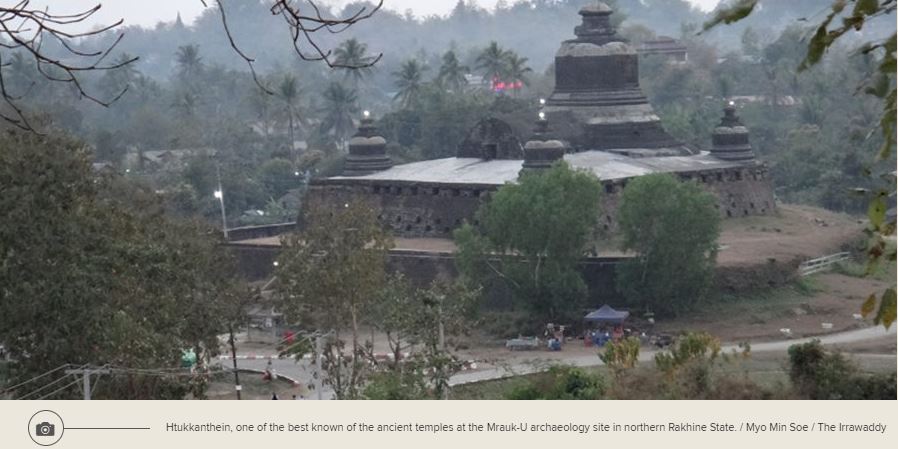YANGON — The Italian Embassy in Yangon and UNESCO’s Myanmar office signed a €300,000 agreement on Wednesday to boost conservation efforts in Mrauk-U, the ancient capital of the Arakan kingdom. The centuries-old site in northern Rakhine State is known for its stone pagodas and stupas.
According to an Italian Embassy statement, the contribution to the archeological project is being made in direct response to recommendations in the August 2017 final report of the Advisory Commission on Rakhine State led by Kofi Annan, which called for greater support for development in the state.
The embassy said the Myanmar government had acknowledged the role that promotion of Mrauk-U could play in the sustainable development of the state, and had therefore decided to boost efforts to have the site nominated for listing as a UNESCO World Heritage Site.
The statement said the embassy would support Mrauk-U’s candidacy and cooperate on the protection of monuments in line with World Heritage standards. UNESCO will implement the initiative under the supervision of the Italian Agency for Development Cooperation in partnership with the Ministry of Religious Affairs and Culture’s Department of Archaeology (DOA).
Italian Ambassador Pier Giorgio Aliberti and the head of UNESCO in Myanmar, Min Heong Kim, signed the agreement, “Supporting the safeguarding, management and valorization of Mrauk”, at the embassy on Wednesday.
To draw more tourists, local authorities announced in 2015 a plan to build an airport in Mrauk-U, but it is still not finished due to delays by authorities in funding the 26 billion kyat ($18.9 million US) project, which was not begun until last year.
Until early 1783, the Arakan kingdom was a sovereign nation and ruled by Maha Thamada Razar. It was conquered by the Burmese Konbaung Dynasty in 1784.

